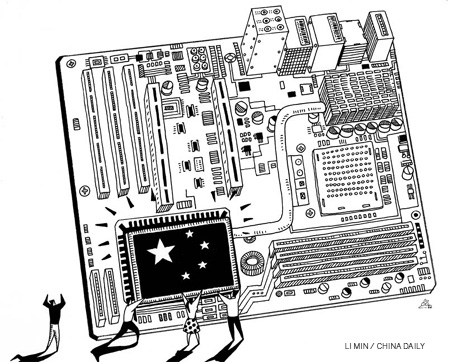Anti-China allegations reveal old mindset

Even before the tide of criticism against China's currency rate could recede, Washington has questioned Beijing's technology innovation policy. In the US Chamber of Commerce report on China's industrial policies, American trade officials have censured China's indigenous innovation policy. The US chamber says China's technology innovation policy is either forced technology transfer or technology theft.
By defining indigenous innovation as enhancing original innovation through co-innovation and/or re-innovation based on the assimilation of imported technologies, China negates autarky and adopts an open stance toward building its technological capacity on existing technologies, domestic and foreign both. Yet the US views this as China's intention to dominate the world and wrest the global leadership from other countries (mainly the US).
The US chamber report shows what the Americans are most worried about is China's hi-tech move, which Washington thinks is based upon foreign investment in the country, government procurement, compulsory licensing of patents and improvement of existing foreign patents.
WTO rules help us address US concerns. When China was admitted to the WTO, it vowed never to use technology transfer as a condition for investment in the country. China's laws have honored that commitment. Though China is not yet a signatory to the Government Procurement Agreement, when it comes to government procurement, it promises to offer the most-favored-nation status to other countries.
WTO rules on intellectual property rights' protection provide conditions for compulsory licensing, and China has made several amendments to its laws to conform to international rules. Besides, there hasn't been a really serious licensing case in China. What could then make the US say China's new technology development approach is technology theft?
 0
0 






